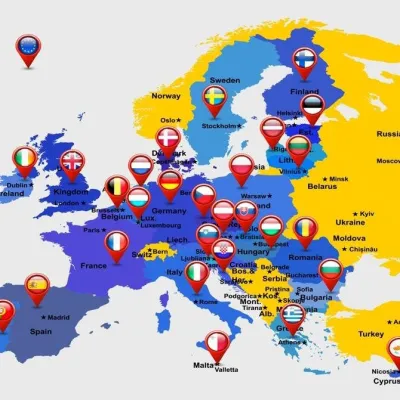The Erasmus+ programme supports cooperation in education, training, youth, and sport between the European Union and partner countries. The programme is open to all EU member states, as well as a number of countries around the world.
There are two main categories of partner countries:

Associated countries: These countries are fully integrated into the Erasmus+ programme and can participate in all of its actions. There are currently six associated countries: North Macedonia, Serbia, Iceland, Liechtenstein, Norway, and Türkiye.
Non-associated countries: These countries can participate in some, but not all, Erasmus+ actions. There are a large number of non-associated countries, spanning the globe. Some of the largest non-associated countries include: Algeria, Brazil, Canada, China, India, Indonesia, Japan, Kenya, Mexico, Morocco, South Africa, South Korea, and the United States.
The Erasmus+ programme offers a wide range of opportunities for students, teachers, youth workers, and researchers. These opportunities include:
- Erasmus+ exchange programmes: These programmes allow students and teachers to study or teach for a short period of time at an institution in another country.
- Erasmus+ traineeships: These programmes allow young people to gain work experience in another country.
- Erasmus+ youth exchanges: These programmes allow groups of young people to meet and work together on a project.
- Erasmus+ capacity-building programmes: These programmes provide funding to institutions and organisations in partner countries to develop their capacity in education, training, youth, and sport.
For more information on the Erasmus+ programme, please visit the official website: https://erasmus-plus.ec.europa.eu/

